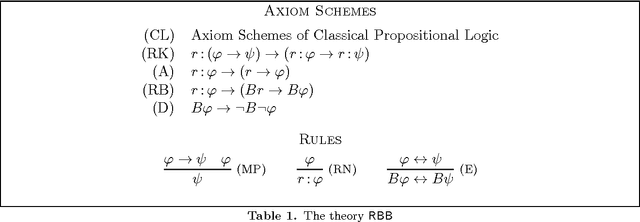Paul Egré
On the Optimality of Vagueness: "Around", "Between", and the Gricean Maxims
Sep 08, 2020



Abstract:Why is our language vague? We argue that in contexts in which a cooperative speaker is not perfectly informed about the world, the use of vague expressions can offer an optimal tradeoff between truthfulness (Gricean Quality) and informativeness (Gricean Quantity). Focusing on expressions of approximation such as "around", which are semantically vague, we show that they allow the speaker to convey indirect probabilistic information, in a way that gives the listener a more accurate representation of the information available to the speaker than any more precise expression would (intervals of the form "between"). We give a probabilistic treatment of the interpretation of "around", and offer a model for the interpretation and use of "around"-statements within the Rational Speech Act (RSA) framework. Our model differs in substantive ways from the Lexical Uncertainty model often used within the RSA framework for vague predicates.
Knowledge, Justification, and Reason-Based Belief
May 20, 2015
Abstract:Is knowledge definable as justified true belief ("JTB")? We argue that one can legitimately answer positively or negatively, depending on how the notion of justification is understood. To facilitate our argument, we introduce a simple propositional logic of reason-based belief. We show that this logic is sufficiently flexible to accommodate various useful features, including quantification over reasons. We use our framework to contrast two notions of JTB: one internalist, the other externalist. We argue that Gettier cases essentially challenge the internalist notion but not the externalist one. In particular, we may equate knowledge and JTB if the latter is grounded in what we call "adequate" reasons.
 Add to Chrome
Add to Chrome Add to Firefox
Add to Firefox Add to Edge
Add to Edge